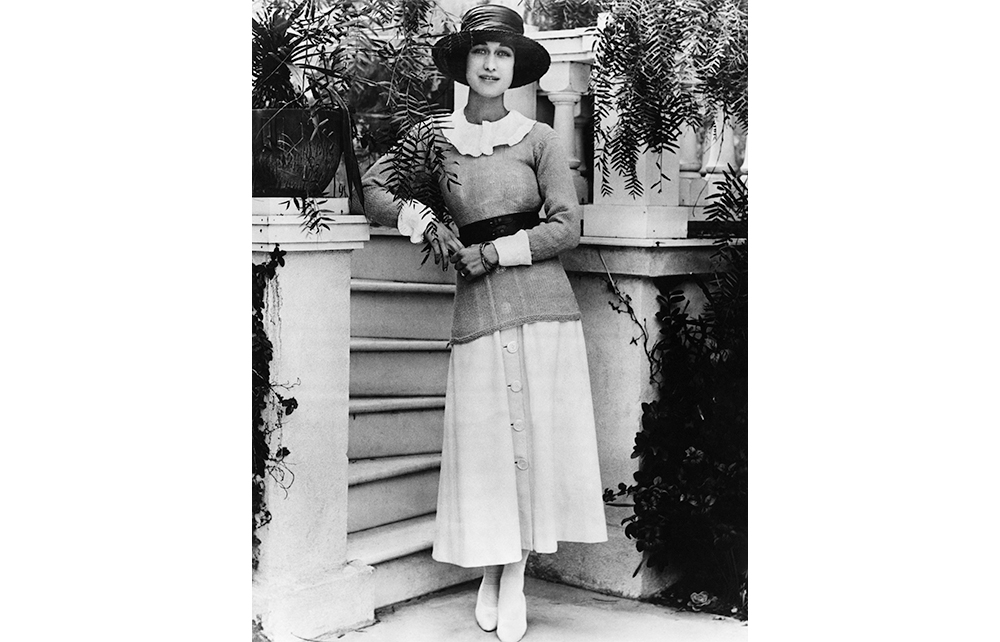Few women have had more written about them, mostly of a critical, salacious nature, than Wallis Simpson, the American divorcee for whom Edward VIII gave up his crown. Much of the gossip has fed on what became known as the ‘China Dossier’, a supposed compendium of the year Simpson (or Spencer, as she then was) spent in China in the mid-1920s while she was trying to get a divorce from her heavy-drinking, abusive, naval first husband. As Paul French sets out to prove, the story of what she herself called her ‘lotus years’ is more prosaic, but no less fascinating.
The ‘China Dossier’ was said to include details of opium addiction and a technique called the Shanghai grip
Simpson arrived in Shanghai in the summer of 1924, hoping to make a fresh start. She was 28. She had very little money and, though not beautiful, she was chic, attractive to men and good at enjoying herself. Warlords were fighting for power in the wake of the collapse of the 167-year-old Qing dynasty, and Shanghai was everything that her Baltimore upbringing was not: noisy, brash and endlessly exciting. Drawn into the large foreign colony which ruled over the treaty port, Wallis embarked on a whirl of race meetings, night clubs, thés dansants and shopping expeditions. As she wrote in her auto-biography later, life was ‘good, very good, almost too good’.
Still hoping to find a way of securing her divorce – Shanghai had residency regulations she could not get around – she moved on to Peking, taking the romantic Shanghai Express later immortalised by Marlene Dietrich. Her funds were severely limited and French suggests that she was able to keep afloat by acting as a courier for the American authorities at a time when the war made the posts uncertain. Peking was less flashy than Shanghai but even more fun. Through a chance reunion with an old friend, Kitty, now married to the very rich East Coast American Herman Rogers, Wallis moved into their magnificent courtyard house in one of the city’s many hutongs or alleyways, rode sturdy Mongolian ponies on the Tartar Wall and spent her weekends in the cool foothills not far from the Forbidden City. There were armies of servants and French and Italian imported wines. Life was elegant.
To boost her finances, she bought brocades, beadwork, cloisonné bowls and especially jade to sell on to rich foreigners with a mania for collecting curios. In the process, she became something of an expert and acquired a lifelong taste for all things Chinese. Cecil Beaton would later describe her hair as being as sleek as that of a Chinese woman, and her skin as ‘bright and smooth as the inside of a shell’. She also won money at poker.
French, who lived and worked in Shanghai for many years, excels at the details of daily life, the unfamiliar food, the scent of wisteria and the seamier side of drains, thieves and bandits and the way the rains reduced the hutongs to rivers of mud. He lists birds and insects and describes the yellow-haired weasel known to the Chinese as a ‘rat-wolf’. Many foreign writers passed through Peking and Shanghai between the wars, leaving memoirs of their travels, and these he mines to great effect.
Simpson, as he records, did indeed have several affairs, of a pleasant but respectable kind. These did not include, as other writers have wrongly suggested, one with Count Galeazzo Ciano, temporarily posted to Peking as a diplomat before his marriage to Mussolini’s daughter, Edda. Their dates did not coincide.
On 19 June 1925, Simpson turned 29. Fearing, as she wrote later, that she was beginning to ‘confuse a lotus eater’s illusions for reality’, she set off back to America, a tougher, more independent and more sophisticated woman. Before long, she embarked on a second marriage, to a shipbroker, and not many years after that she met and became the mistress, and eventually wife, of Edward VIII.
The opposition to the match was vicious. The much-touted China Dossier was reported to include details of opium addiction and a sexual technique called the Shanghai grip (described as making ‘a matchstick feel like a cigar’) with which she was said to have infatuated the king and which delighted gossipy London. As French convincingly concludes after diligent research, there were no louche adventures – and no China Dossier has ever come to light. But it proved a useful myth at a time when it was unacceptable for a British king to marry a foreign divorcee, and the Far East was regarded as more depraved than exotic.
What French lacks in personal material he more than makes up for in his considerable knowledge of the place and period and in his evident pleasure in the texture and fabric of these foreign enclaves. Her Lotus Years stays in the mind as a bright, shining, lively snapshot, delightful to read.







Comments